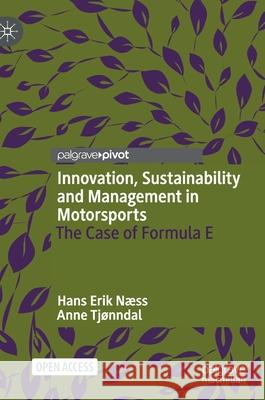Innovation, Sustainability and Management in Motorsports: The Case of Formula E » książka
topmenu
Innovation, Sustainability and Management in Motorsports: The Case of Formula E
ISBN-13: 9783030742201 / Angielski / Twarda / 2021 / 140 str.
Kategorie:
Kategorie BISAC:
Wydawca:
Palgrave MacMillan
Język:
Angielski
ISBN-13:
9783030742201
Rok wydania:
2021
Wydanie:
2021
Ilość stron:
140
Waga:
0.33 kg
Wymiary:
21.01 x 14.81 x 0.97
Oprawa:
Twarda
Wolumenów:
01
Dodatkowe informacje:
Wydanie ilustrowane











